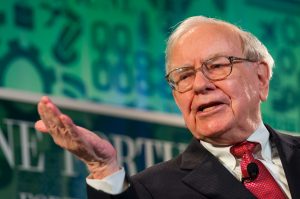Meta Platforms Inc., the parent company of Facebook, Instagram, and WhatsApp, began a pivotal legal showdown with the U.S. Federal Trade Commission (FTC) on Monday in a Washington, D.C., courtroom. The trial, which could redefine the boundaries of antitrust law and reshape the social media landscape, centers on allegations that Meta’s acquisitions of Instagram in 2012 and WhatsApp in 2014 were anti-competitive moves to cement an illegal monopoly.
The FTC contends that Meta’s strategy of acquiring nascent competitors—often referred to as a “buy or bury” approach—has stifled innovation and limited consumer choice in the social media market. The agency is seeking a historic remedy: forcing Meta to divest Instagram and WhatsApp, two pillars of its $1.4 trillion advertising empire. Such a breakup would mark one of the most significant corporate restructurings since the dissolution of AT&T’s telephone monopoly in the 1980s.
“This case is about ensuring a competitive marketplace where innovation can thrive,” said FTC attorney Daniel Matheson during opening statements. He argued that Meta’s dominance has led to declining service quality and weaker privacy protections, as the company faces little pressure to improve without viable rivals.
Meta, however, denies the allegations, asserting that its acquisitions have enhanced user experiences and fostered competition. “Instagram and WhatsApp are what they are today because of Meta’s investment and innovation,” said Mark Hansen, Meta’s lead attorney, in court. He pointed to rivals like TikTok, YouTube, and Snapchat as evidence of a vibrant, competitive social media ecosystem, arguing that the FTC’s definition of the market—focused narrowly on “personal social networking”—is outdated and overly restrictive.
The trial, presided over by U.S. District Judge James Boasberg, is expected to last several weeks and feature testimony from high-profile figures, including Meta CEO Mark Zuckerberg and former Chief Operating Officer Sheryl Sandberg. Executives from competing platforms, such as TikTok and Snap, are also slated to appear, offering insights into the industry’s dynamics.
A Long-Running Legal Saga
The FTC’s case traces its roots to December 2020, when the agency, alongside 46 states, first filed suit against Meta—then known as Facebook—during the final weeks of President Donald Trump’s first term. An initial complaint was dismissed in 2021 for insufficient evidence, but the FTC refiled with a stronger case, which survived Meta’s attempts to have it thrown out in 2022 and 2024.
At the heart of the FTC’s argument is Meta’s alleged intent to neutralize potential threats. Prosecutors plan to present internal documents, including a 2008 email from Zuckerberg stating, “It is better to buy than compete,” and a 2012 memo describing the Instagram acquisition as a way to “neutralize a potential competitor.” The agency claims Meta overpaid for Instagram ($1 billion) and WhatsApp ($22 billion) to eliminate rivals rather than compete on merit, particularly as the industry shifted toward mobile platforms.
Meta counters that both apps have flourished under its stewardship, gaining features and scale they might not have achieved independently. “Consumers have benefited from our investments,” Hansen said, citing Instagram’s growth from a niche photo-sharing app to a global platform with over 2 billion users.
Political Undercurrents
The trial unfolds against a complex political backdrop. The case was initiated under a Republican administration but advanced under President Joe Biden’s FTC Chair Lina Khan, known for her aggressive stance on Big Tech. Khan’s tenure ended in January 2025, when President Trump, newly returned to office, appointed Andrew Ferguson as FTC chair. Trump’s recent moves, including the controversial firing of two Democratic FTC commissioners, have raised questions about potential White House influence over the case.
Zuckerberg has made overtures to the Trump administration, including a reported White House visit and a $1 million donation to Trump’s second inauguration fund. These efforts have fueled speculation about a possible settlement, though no agreement has materialized. “The FTC’s lawsuit defies reality,” Meta spokesperson Christopher Sgro said in a statement, emphasizing the company’s readiness to fight in court.
Broader Implications
Legal experts say the trial could set a precedent for how antitrust laws are applied to tech giants, particularly in fast-evolving digital markets. The FTC faces a steep challenge in proving that Meta’s acquisitions harmed competition, given the difficulty of demonstrating what the market might have looked like without them. Judge Boasberg has previously expressed skepticism about the FTC’s claims, noting in a 2024 ruling that they “strain this country’s creaking antitrust precedents.”
A Meta victory could embolden other tech firms to pursue aggressive acquisition strategies, while a win for the FTC might deter monopolistic behavior and encourage startups to compete. “This case tests whether antitrust law can keep pace with the tech industry,” said Rebecca Haw Allensworth, an antitrust professor at Vanderbilt Law School.
For Meta, the stakes are existential. Instagram accounts for roughly half of the company’s U.S. advertising revenue, and WhatsApp, while less monetized, boasts billions of daily users. A forced divestiture could disrupt Meta’s business model and weaken its position against competitors, especially as emerging technologies like artificial intelligence reshape the industry.
As the trial progresses, all eyes will be on Boasberg’s courtroom, where the future of one of the world’s most powerful tech companies—and the broader social media landscape—hangs in the balance.







Be First to Comment